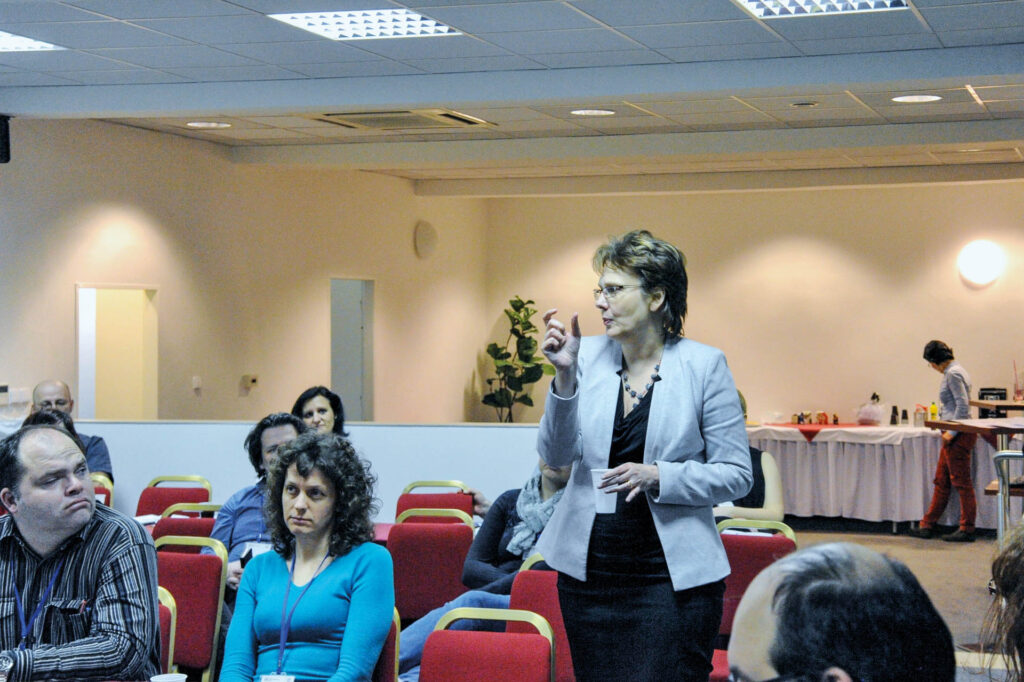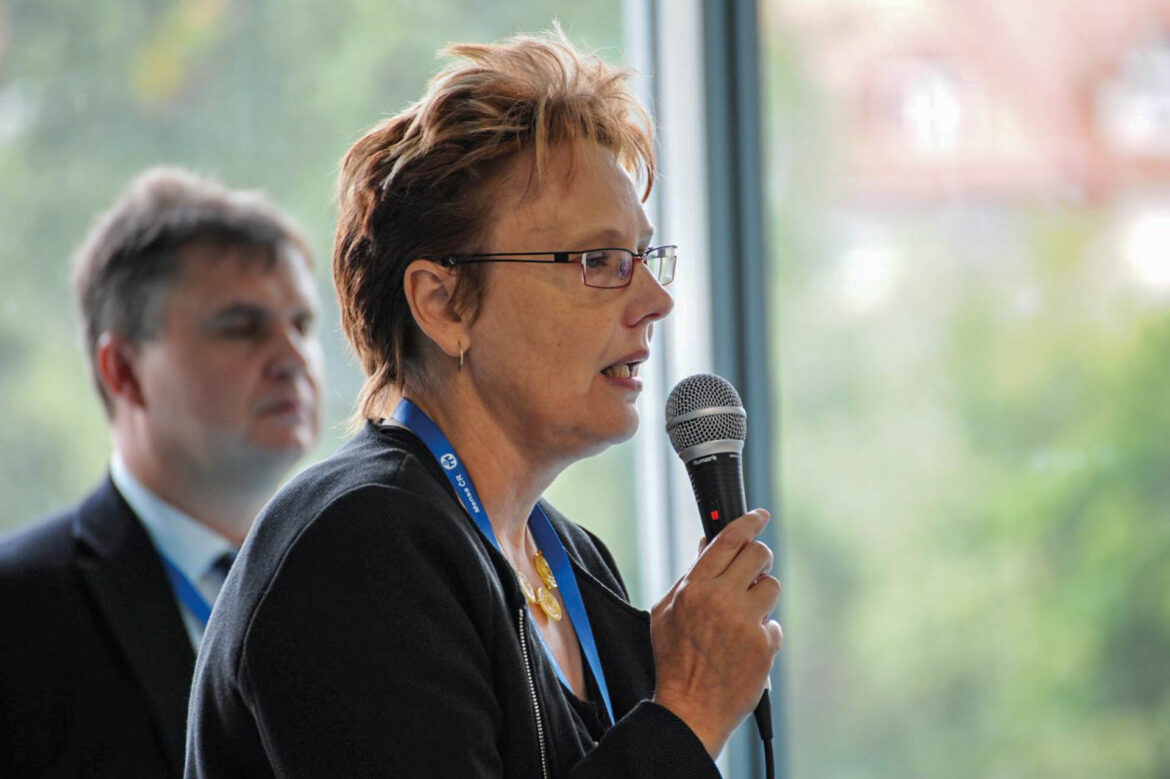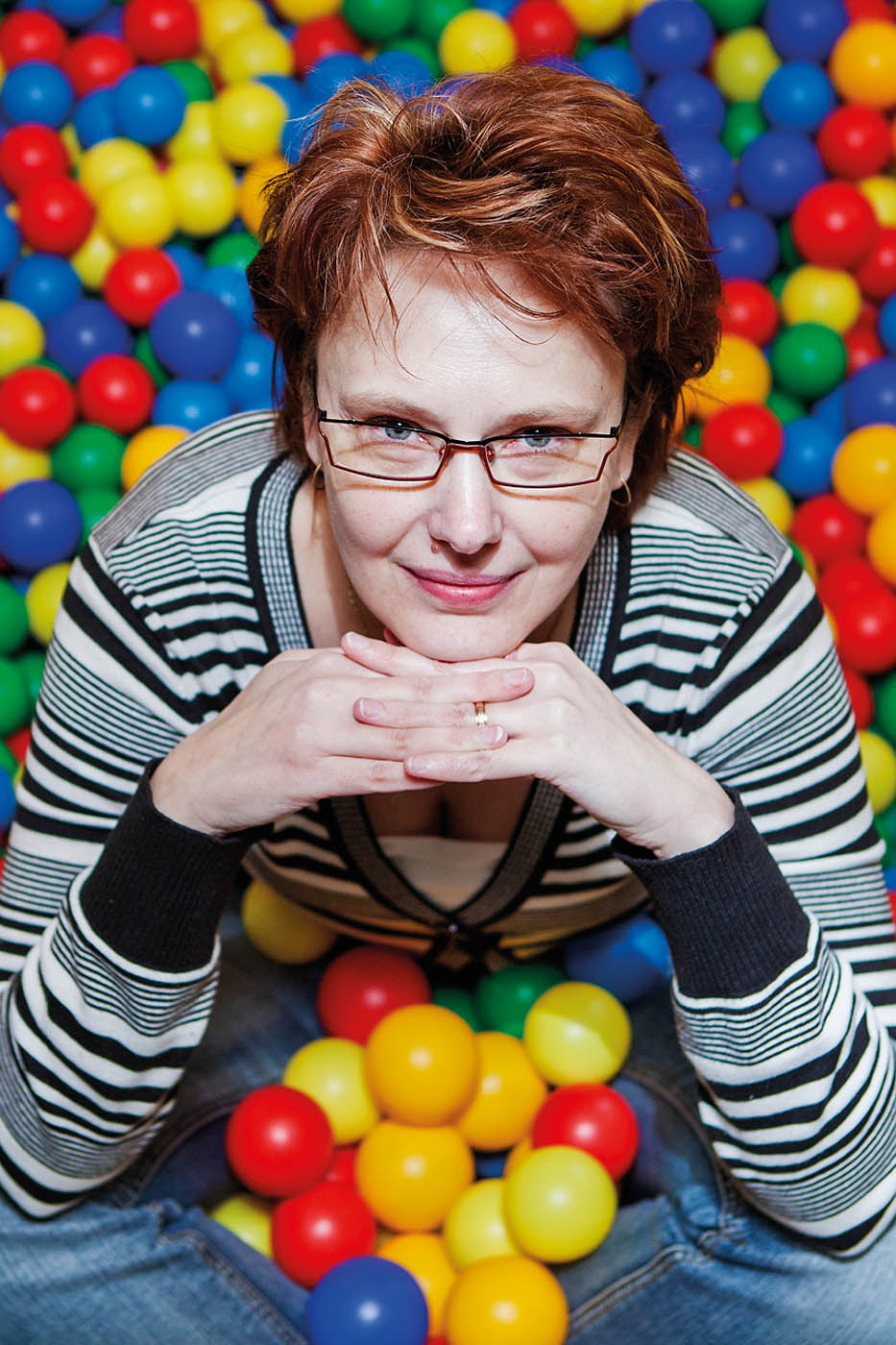
mensanthropist [ men-san-thruh-pist ] noun
a person, who actively participates in fulfilling one of Mensa’s objectives by fostering and utilizing intelligence for the benefit of humanity
For the ninth episode, I interviewed Magda Čavojská, principal of the Horní Slavkov Primary School and a special education teacher. She is dedicated to supporting gifted children both in her profession and in her free time as a Mensa volunteer – especially by helping to introduce the NTC learning method into nursery and primary schools.
Magda, have you been in one elementary school your whole career, or have you visited other schools?
I have actually been through education in all spheres, because thanks to my husband’s job we moved a lot – and always during the school year. So I’ve been knocking out the positions of various substitutes for nursery schools and so on, from preschools to high schools. But it was just the right age for me to get good life experience from situations like that; it all worked out for me in the end.
Then I worked in a special school for many years, so on the other side of the Gaussian curve, so when there was an opportunity to make up for it with gifted children, it was quite natural for me. Because there are „monkeys“ on both sides. They’re always giggling about something different than everyone else, their shoe laces untied or their shirt buttoned, whether they’re more or less mentally adept.
Eventually, I studied school management and nine years ago I won an audition to become a school principal. This put me in a mainstream primary school, and because I already had experience with ‚other‘ children, I began to purposefully push the understanding of this issue in the mainstream classroom.
Two years ago, because of the situation in the region, we absorbed the school I originally came from. So the special classes continue to operate under the umbrella of the primary school – currently the school has eighteen regular and eight special classes.
Where was your first contact with Mensa?
We found an advertisement in the newspaper that there was going to be an open day at a private school in Sokolov, and that psychologists from Prague would be testing there – and a psychologist from Prague, that must be capacity. That was the first time we heard anything about giftedness. Thanks to that, we then came across the Fořtík Center for Giftedness, with whom we started to discover this topic.
By both my husband and I being in education, we began to realize that this was a topic that was not yet in mainstream education, but it belonged there. So we started promoting it, tracking down different materials and informing people around us that something like this existed. It had a kind of natural evolution.
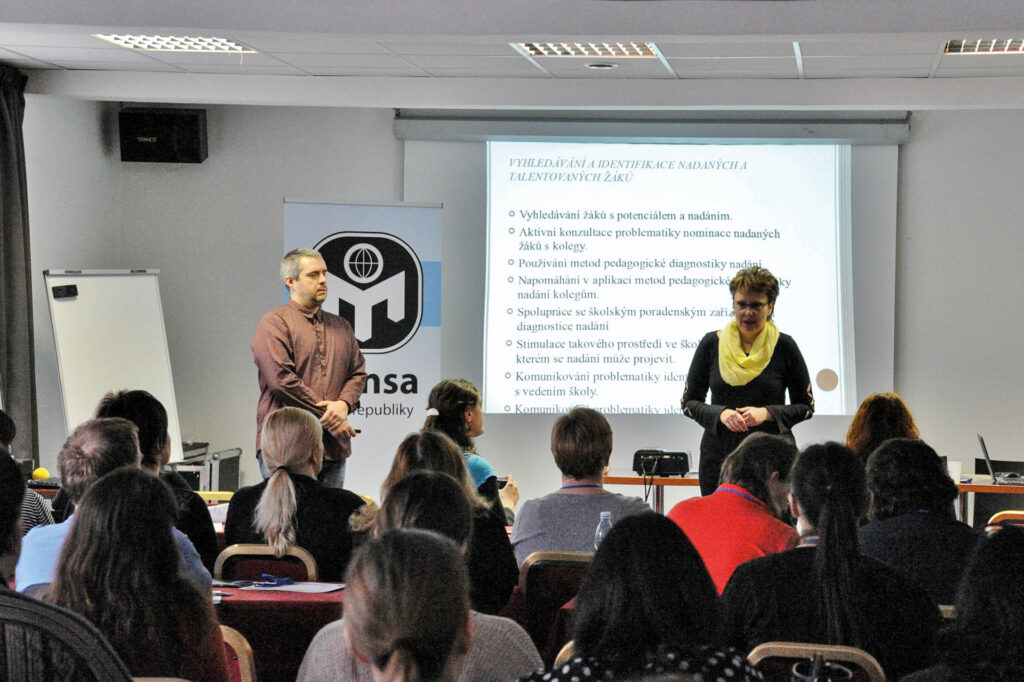
This was before you started as the principal in Slavkov?
Yes, and actually at a time when people were just starting to talk about gifted children. It’s strange, it sounds historical, but we really remember the very beginning, when the topic of giftedness was only slowly emerging and many people categorically rejected it. Most people felt it was elitist, it was protectionist, teachers just had kids pigeonholed as either naughty or nice. Gifted, for most, was someone who performed all tasks flawlessly and happily, and was confused with a motivated student. There were also few people who educated teachers in the area of giftedness. Fořtíks were very enlightened in this regard, even as they began to educate parents. And we, as involved parents, piloted everything on our children and blazed those trails with our younger son’s teachers 😊
The period of inclusion helped that not only children with some deficiencies started to be addressed, but also children whose giftedness was actually a handicap because they were different and that otherness was not grasped. It is only now that it is being talked about openly. In the last couple of years it has shifted a lot and I think that thanks to Mensa’s activities there are many more parents and teachers who want to work with these children. Teachers finally understand that working with a gifted student is twice as hard as working with a student who has no „problem“.
So it is not true that a gifted child is automatically successful in school?
It doesn’t. Just because a child is intellectually proficient, outperforms his or her peers, and reads ahead of others does not at all mean that he or she will be a successful college student, for example. If everything comes to them for a long time on its own, because it’s nicely stored in their head, and even high school is pretty much fine, then college is suddenly a shock – it’s about a different organization of time, and also about the fact that if I want to pass the exam, I have to meet the conditions that I don’t like. Either I do what the professor wants me to do, or I leave. And suddenly we found out, not only on our kids but also on their peers, that a lot of them don’t want to fulfill those requirements because they have some internal problem with them.
That’s why we see a lot of smart college graduates who, while not quite intellectually high, have developed the free will components, the responsibility for education, can organize their time, have the diligence, and go for it, while some kids who shouldn’t have a problem intellectually studying lack those very qualities to follow through.
So, paradoxically, it seems that the child who is better positioned to succeed is hindered by a system set up for mediocrity.
Primary schools are already prepared for gifted children because the process of accepting giftedness is already there. Now the high schools are coming to terms with it, they’re already getting the identified gifted in, but the high school is still set up much like it was when we graduated – and I don’t mean to offend anyone. The credit system may have changed, but it’s still a matter of passing or failing the exam depending on how I satisfy the examiner’s idea. Few really care how much I understand the subject area or how I am able to handle it and grapple with the potential pitfalls but they see as more important whether I have crammed the 200 pages of scripts that are relevant to a particular teacher – honour the exceptions.
How specifically do you work with gifted children in your school?
As a school, we try to approach gifted children differently. We already have a coordinator for giftedness care – the teacher finds gifted children, helps teachers to solve the problems of these children, organizes the Logic Olympiad, helps parents to navigate among information, advises what to do with a child who has been reading since the age of four so that the first class doesn’t poison them and destroy them, she is simply a kind of partner between the school and the parent. And of course I create the conditions for her to do that.
The children then come to acceleration of a particular subject. We’ve already got that sorted out, and now from the first of September we’re creating the position of a teacher who will provide differentiated teaching in Czech and math lessons. As part of the individualization, she will address topics in greater depth or in a different type of assignment that would not be covered in regular instruction. We want gifted children to get along and to find out that everything does not come by itself – even if in a regular group it looks like they are always the best and first in everything, when they get into a group of selected children, they have to fight for their role.

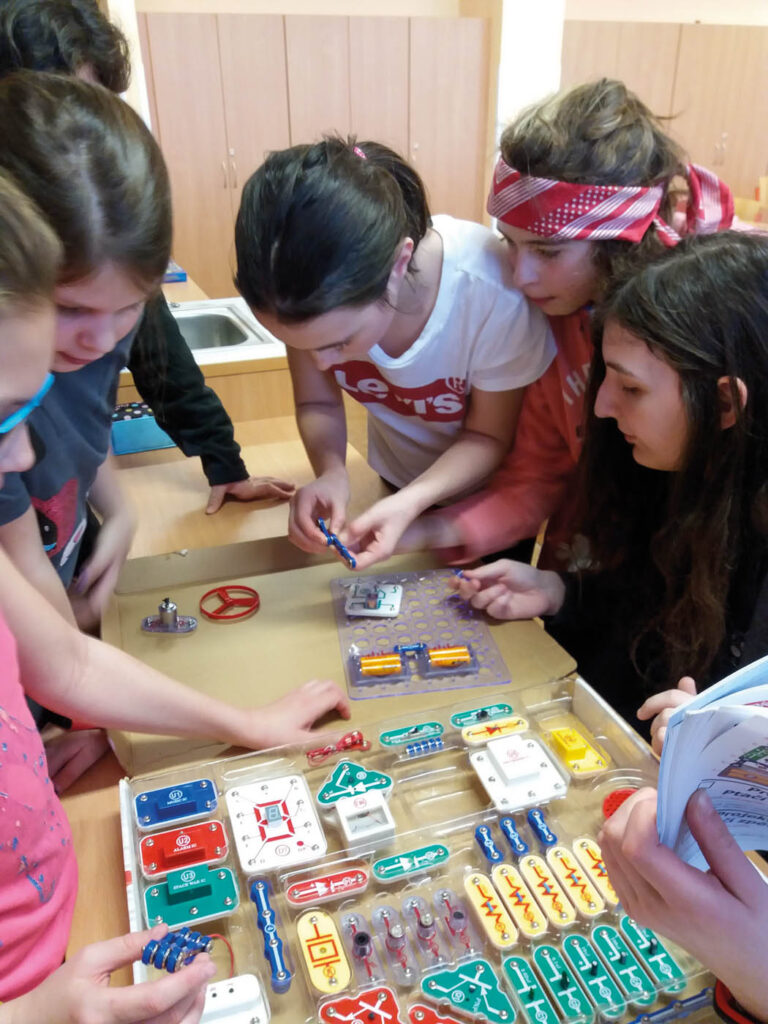

So it’s not just about developing their own talents, but more about putting adequate load on them to give them the opportunity to develop in areas they wouldn’t otherwise develop because they don’t need to?
Or in areas that perhaps wouldn’t have been covered at all, or there wouldn’t have been time for issues that the rest of the class doesn’t enjoy. Here the kids have that opportunity. Yet we put this in our Czech and math classes deliberately – not as a development of reading and math skills, but as a development of verbal and mathematical reasoning and, of course, creativity.
How do you identify gifted children?
We work with Mensa on testing and we work with the counselling rooms where we can work things out. I would say that the Carlsbad counseling center is very progressive in this way compared to what I hear from other places, for example. Nobody holds gifted children back there, on the contrary, when they see that the school wants to pay attention to them, they help.
We use various associated activities such as templates or projects to motivate parents to cooperate. They see that the child is willing to come to school voluntarily and to think even after school. What more can we wish? In addition to that the NTC method started to be used, both of our Slavkov schools are already working with it and thanks to this we are also able to pick up gifted children yet in the pre-school period.
I can already set up a program for a child in the first class at the end of August, knowing where we will enrich them and how to prepare for them. We don’t want to be unaware that a child is a reader until the moment they are about to start syllabicating. That can’t happen.
I’m glad you mentioned NTC. For people who don’t know – what does the acronym stand for and how did you first come across the method?
The letters NTC stand for Nikola Tesla Center, where the method originated.
It’s a method that generally develops children in different skills. It is so ideal to use in nursery groups because it helps all children to develop motor or cognitive skills, and it also satisfies the gifted ones by allowing them to take a little more from the activities offered. For example, when associations are practiced, gifted children are able to apply them more quickly and transfer them to their childhood worlds.
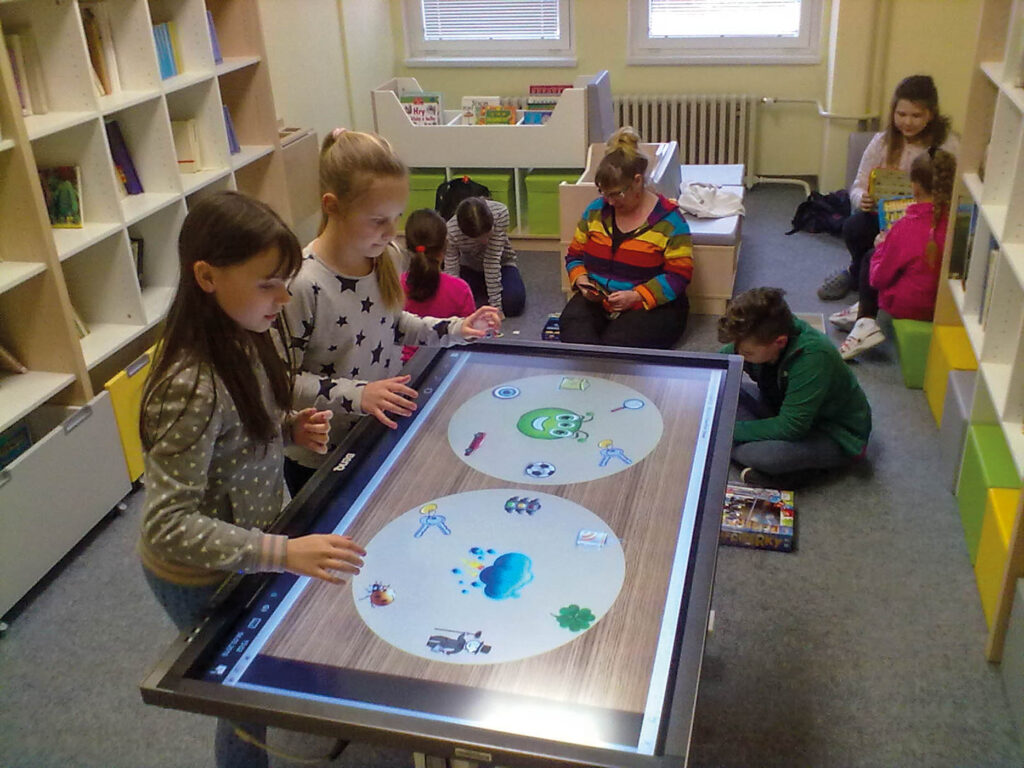
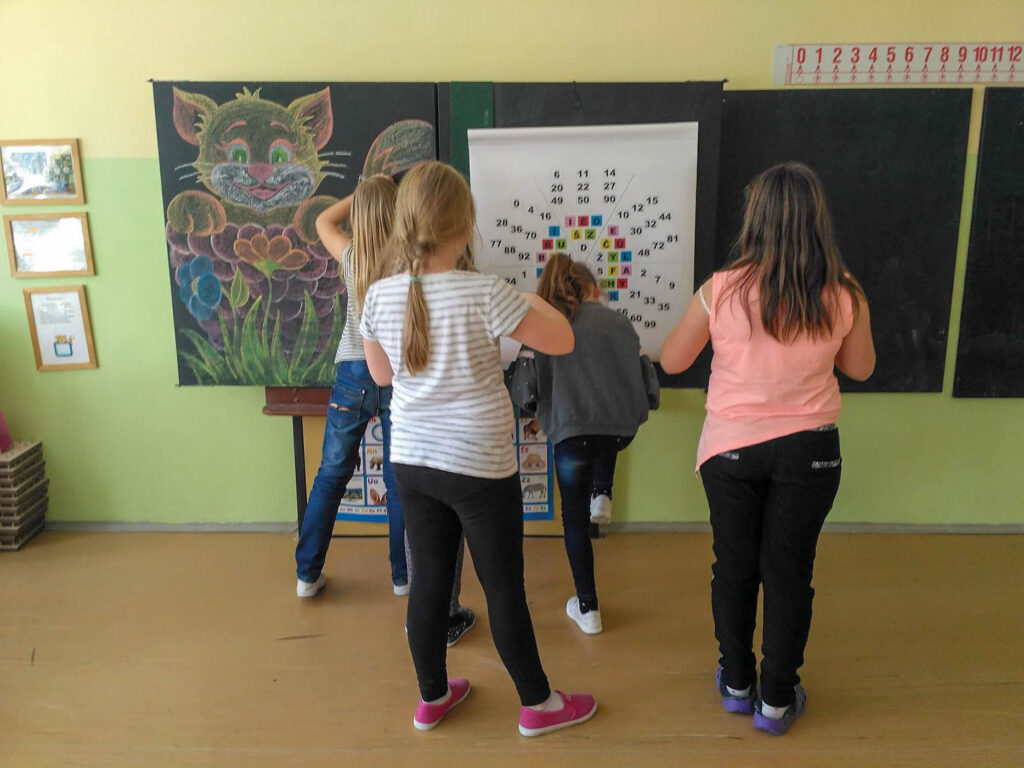
Parents love the method – their children are suddenly interested in things they didn’t feel they could handle. For example, when a pre-schooler is able to work with flags not only as symbols, but they are also interested in what Kazakhstan is or what it looks like in Australia – and they know that there is more than just kangaroos. This gives the children the opportunity to explore, to question and to be exposed to different topics that enrich the context.
I am reminded of a hospitalization in a first grade classroom. There were children from a kindergarten where they had been through the NTC method, and children from another kindergarten, and they were asked to say things that began with the letter M. They started with words like muffin or monkey, and suddenly the NTC children were off and running: Macedonia, Moldova, Moscow… They used what they knew from kindergarten and were able to tell the others about it. The teacher reacted beautifully, reached for the atlas, showed where Macedonia was, and the NTC children added the flag – in short, they added that extra information.
So, can we simplify it by saying that the method is about providing a wider range of stimuli that stimulates children’s curiosity?
That too, but there are simply methods used that haven’t been used with children that much before, such as associations. They used to be taught that they belonged to a different age group, but we are able to work with them at two or three years old, and that makes the stimuli more playful, more natural for the children, and it makes it easier for them to apply the skills they have learned.
I’ve read that the NTC method is most effective before age 6, when 75% of the synapses in the brain are forming. How did you get into it in elementary school, which actually starts at age 6?
Development is the highest up to age 6, but that doesn’t mean it stops then, the plasticity of the brain is still present and we can still add something. The methods are wonderfully set up, so even with first graders they are motivating. For the older children, it again expands the opportunity to work with areas that we haven’t used that much in school before. So far it has been mainly about concentration of attention, orientation to information and memory skills, but to add for example conscious associations or even double associations, that was not talked about before.
How do parents find out about something like this? I, for one, didn’t know about the method as a parent until my son was about ten years old.
Mensa does outreach to parents as well and various talks to the public, but the best way to target it is through school teachers. It’s also more rewarding for the parents – to learn what the nursery is coming up with and to see what it would bring to their children. When parents can be motivated in this way, they become partners for the nursery. What the child does in nursery, he or she then takes home, wants to talk about it and the parent can develop it further.
Teachers from the pre-school classrooms usually come to the seminars first, because they see it as preparation for school. The following year, teachers from the middle classrooms of the same nursery school [in Czechia the education for pre-school children from 3 to 6 is typically provided by the same institution] will come, and then, when the nursery understands that there is some continuity to the whole thing, teachers of the two and three year olds come as well. They realize that if you start early with cognitive skills support, the child goes to school really prepared and the nursery has done the best it can do.
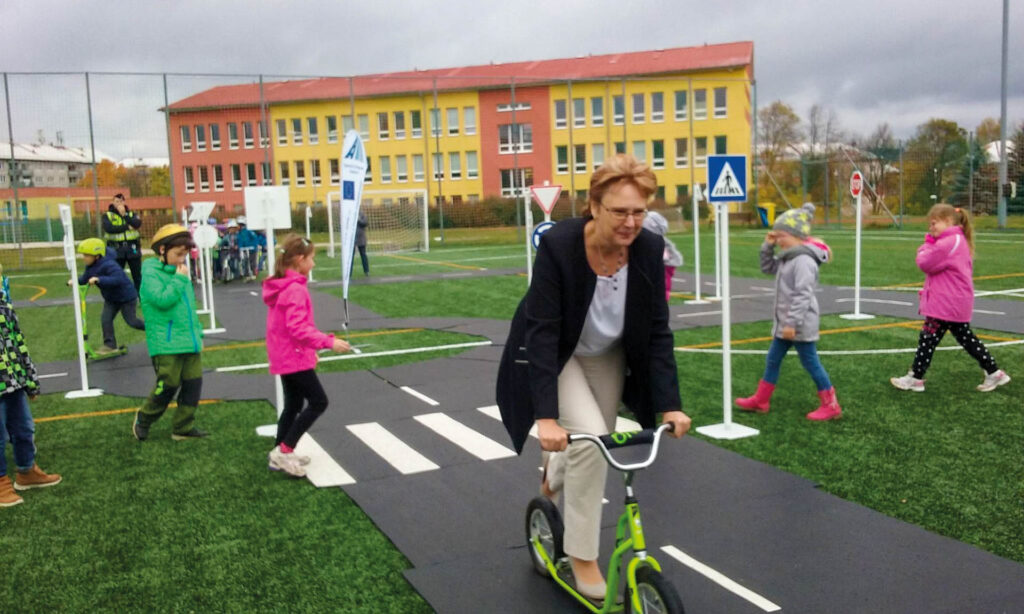
Can you give me an example of how the reaction of a child who has been through the NTC method will differ from that of a normal child to a task or situation?
The motor elements of the NTC method include eye lens accommodation training. The eye has to be able to handle, for example, going quickly from looking at the blackboard back to the textbook, adapting to the environment, moving along the line. A lot of nurseries train children in fluency of eye movements, but it’s not a distance targeted work.
However, this area can be trained earlier, in natural activities – for example, a child takes a ball, throws it on the ground in front of them, it starts bouncing and the child watches the movement all the time. The ball bounces on, or comes closer, or suddenly it bounces. And by teaching children to intentionally lead their eyes to follow the movement in these kinds of playful activities, and doing it daily and regularly, we help them to make the eye movement ready for school work. In the end, these silly ball activities can be preventative and reduce the development of double reading in learning disabilities, for example.
There are two perspectives in the approach to talents – one says that we should have a balanced personality and that we should strengthen our weaknesses, while the other says that we should make the most of our talents because what we are weak in, others will complement us. What do you lean towards and why?
I deliberately tell teachers in seminars that they should also request information from the counseling office about the child’s weaknesses. If the kid has a higher potential in something, I personally think (and I’m speaking now for the mainstream primary school level) that if they have a good background and optimal learning conditions, they will find their way. But if I leave their „holes“, don’t cover the deficiencies and let them deal with them on their own, it may catch up with them maybe in high school or later.
Conversely, if I help them develop not only their areas of interest, but also the things they put off because they find them difficult, if I teach them to overcome obstacles and take responsibility for whether or not they’re moving forward, then I’ll do more for them than if I continue to reinforce to, say, an avid ant hunter that there are only ants, and develop only their ant world. Ideally, we parents and teachers should be able to make the child understand that some things, while they may not be fun because they require more effort, actually motivate them and teach patience. I suspect that this knowledge will be more useful to them in the future than knowing how many hairs an ant has.
Of course, as a parent and teacher, I have to admit that this is an educational top and we don’t always come out as winners 🙂
So, could it be said that it is better to look out for weaknesses in childhood in order to build the foundation and skills to develop our strengths and talents in adulthood?
I don’t know if I would define it quite that way, I would more say to parents and teachers that if the weaknesses are not developed at the same time, the child will just be one-sidedly out of place and there will be pitfalls in their school life that will deepen what was missed over time.
Often the problem with gifted children is that the more they are „pumped up“ in the cognitive area, the less they are pumped up in the motor, emotional, or social areas. So we need to teach them to live and interact outside their social bubble.
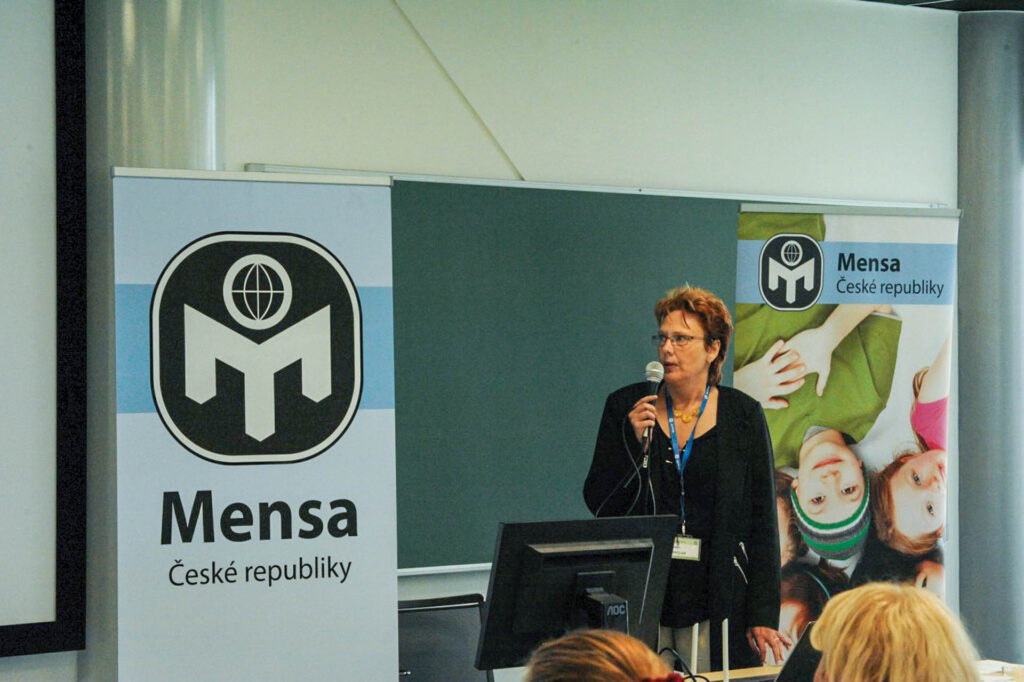
Putting this in terms of the good for society as a whole, where does the responsibility of parents end and the responsibility of the education system begin, so that the talents and intelligence we have in abundance are actually used to the benefit of all?
I wouldn’t say it ends somewhere and begins somewhere else. There are rather certain places where it branches out. The child is first in the family, so there is more responsibility on the part of that family, then there is the moment of transition to nursery, where there is a range of activities and stimuli from both the family and the nursery. Just because children enter the school system does not mean that the family loses responsibility for their educational journey. The interests and ideas of the parents are still there, which the school complements, enriches and, admittedly, to some extent shapes. Then clubs, extracurricular activities, classmates enter into it, and the child becomes beautifully colored. Primary school is not one single avenue for self-education, especially for the gifted. I would say that they take order from primary school and information and inspiration from that informal world.
One last question in closing. Do you have any current wish for the near future, what you would like to see happen, change or succeed in education?
I may be lucky enough to be in a position where I can do a lot of things „my way“ 😊
What I would like is for the media to not make us teachers into satori, to not make education more „funny“ than it is. The ministry to trust its teachers and principals to be competent to do their jobs without superfluous advice. The parents to trust us that most teachers really want to work with them and that we appreciate them entrusting their children to us and allowing us to guide them through the journey of education. I would really like to see those teachers who still don’t follow this path to gradually go somewhere else with their motives, to another department or to retirement, and the new ones who come in to not lose their illusions and optimism so quickly. Pupils should see school as a place of social contact, fun and interest. I wish that not only gifted children consider their classmates, and especially that parents of children consider the diversity of personalities in each class and not see educational needs only through the lens of their child.
Actually, I wish so lot that if you end with three dots it will be enough…
